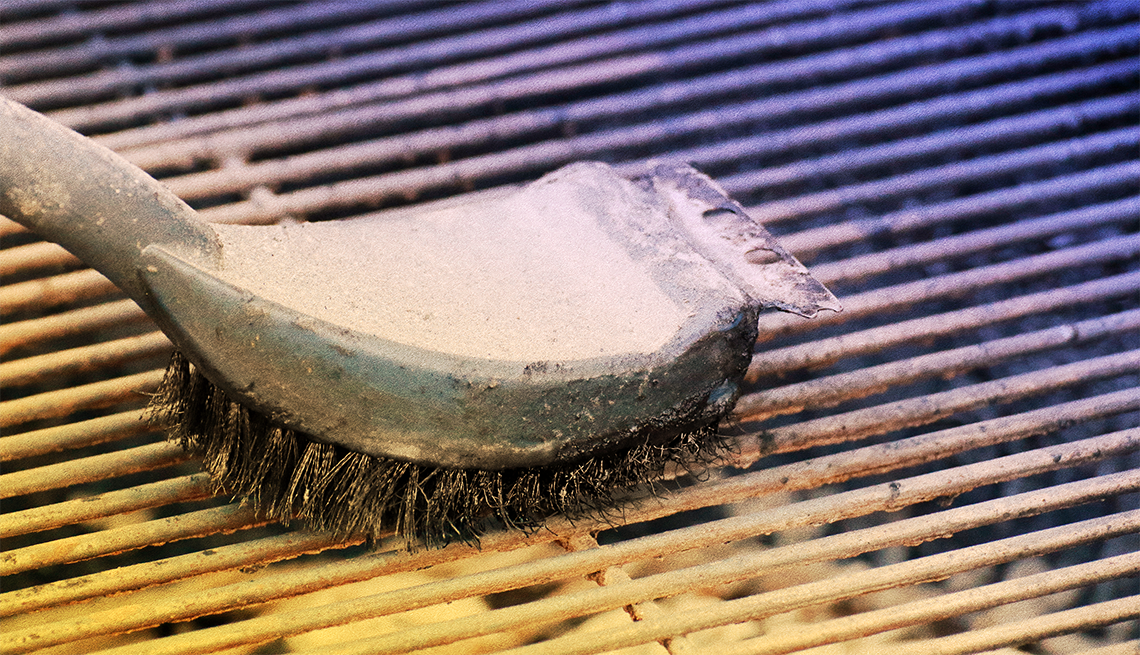AARP Hearing Center


For the overwhelming majority of adults who wind up at the emergency room (ER) complaining of pain from something they’ve accidentally swallowed, that something is usually a fish bone or chicken bone, maybe a toothpick.
But research suggests an outlier — a wire bristle from a grill brush, of all things — is to blame for over 130 ER visits per year. And if you’re wondering how much damage an inch-and-a-half-long wayward bristle can do, the answer is plenty.
“The main danger is that the wire bristle will poke into or perforate the lining of your mouth, throat, esophagus or elsewhere along the intestinal track,” says Mark Prince, M.D., chair of the Department of Otolaryngology-Head and Neck Surgery at the University of Michigan Medical School. “In the least dangerous scenario, this causes pain and requires a visit to the emergency room to be evaluated and have the bristle removed. But if the bristle perforates the lining and migrates into deeper tissues — for instance, into the neck, chest or abdomen — this can lead to pain, possibly infection and the need for complex surgery to remove the bristle.”
That’s what happened to one of Prince’s patients, a 63-year-old woman who initially went to the ER complaining of an unusually painful sore throat. Only a few hours earlier, she explained, she was eating a hot dog her husband had cooked on the grill, and with that first bite, she experienced an immediate pain that grew so severe she had trouble swallowing. That’s when she and her husband headed to the ER.
Was it some strange type of food poisoning? An abscess in her throat?
The doctors examined her and found nothing out of the ordinary, so she returned home, only to have her symptoms worsen in the days and weeks that followed. After six months of searching for a diagnosis, she arrived at Prince’s clinic in Ann Arbor where a CT scan revealed the culprit: a wavy metallic object that looked like a piece of hair at the back of her throat.
A loose bristle from the brush her husband relied on to clean their grill had found its way into that long-ago hot dog she’d consumed. Although the bristle initially embedded itself in one of her tonsils, it eventually found its way into her neck before moving to an area at the back of her throat where it was not only easier for Prince to spot on a CT scan, but also safer for him to remove during surgery.
With that, “more than six months of hospital and clinic visits, pain, difficulty swallowing and recurrent episodes of throat swelling” came to an end, Prince says.





































































More on Health
7 Ways You’re Grilling All Wrong
Don’t let a preventable mistake spoil your next cookout
6 Common Slow Cooker Mistakes That Could Make You Sick
Avoid foodborne illness with these tips
Try These Tips for Living a Healthier Life
Small changes can add up to big mental and physical results
Recommended for You